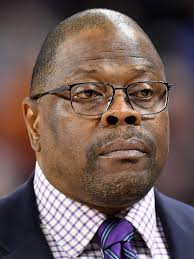As of my last update in August 2024, there have been no reports of Patrick Ewing’s death. However, should such a report emerge in the future, it would undoubtedly be a significant event in the world of basketball and beyond. Patrick Ewing, an iconic figure in the sport, is best known for his impactful career as a player and his ongoing influence in basketball as a coach and mentor.
Ewing, born on August 5, 1962, in Kingston, Jamaica, became a central figure in basketball history through his remarkable career in the NBA. He first gained national attention during his college years at Georgetown University, where he played under coach John Thompson. His time at Georgetown was marked by his dominant performances and his role in leading the Hoyas to the 1984 NCAA Championship game, where they narrowly lost to the University of Houston. Ewing’s college career was distinguished by his exceptional shot-blocking, rebounding, and scoring abilities, which set the stage for his future professional success.
In 1985, Ewing was selected as the first overall pick in the NBA Draft by the New York Knicks, a moment that would shape both his career and the fortunes of the Knicks. Over his 15-year NBA career, Ewing established himself as one of the greatest centers in the history of the game. Known for his formidable presence in the paint, his defensive skills, and his offensive versatility, Ewing was an 11-time NBA All-Star and a member of the All-NBA Team seven times. His leadership and play were instrumental in making the Knicks competitive during the 1990s, where he led the team to multiple playoff appearances and a trip to the NBA Finals in 1994.
Ewing’s influence extended beyond his playing career. After retiring from professional basketball, he transitioned into coaching, bringing his extensive knowledge and experience to various teams. His coaching stints included positions with the Washington Wizards, Orlando Magic, and later as the head coach at Georgetown University, where he sought to build upon the legacy of his college years. Despite facing challenges and varying degrees of success in his coaching career, Ewing’s dedication to the game remained evident.
Patrick Ewing’s impact on the sport of basketball is immeasurable. His contributions on the court have been celebrated with numerous accolades, including his induction into the Naismith Memorial Basketball Hall of Fame in 2008. Off the court, his role as a mentor and his contributions to coaching have further solidified his legacy as a respected figure in basketball.
The news of Ewing’s death, if it were to occur, would resonate deeply with fans, players, and colleagues alike. It would mark the end of an era for the basketball community, reflecting on a career that not only showcased extraordinary talent but also embodied the spirit and dedication of the sport. Tributes would likely pour in from all corners of the basketball world, celebrating Ewing’s achievements and his profound influence on the game. His legacy, built on his incredible career and his continued efforts to advance the sport, would be remembered and honored by those he inspired and mentored throughout his life.
Ewing’s death would be a moment of reflection on his contributions to basketball, recognizing his role as one of the sport’s true legends whose influence extended far beyond his time as a player.
